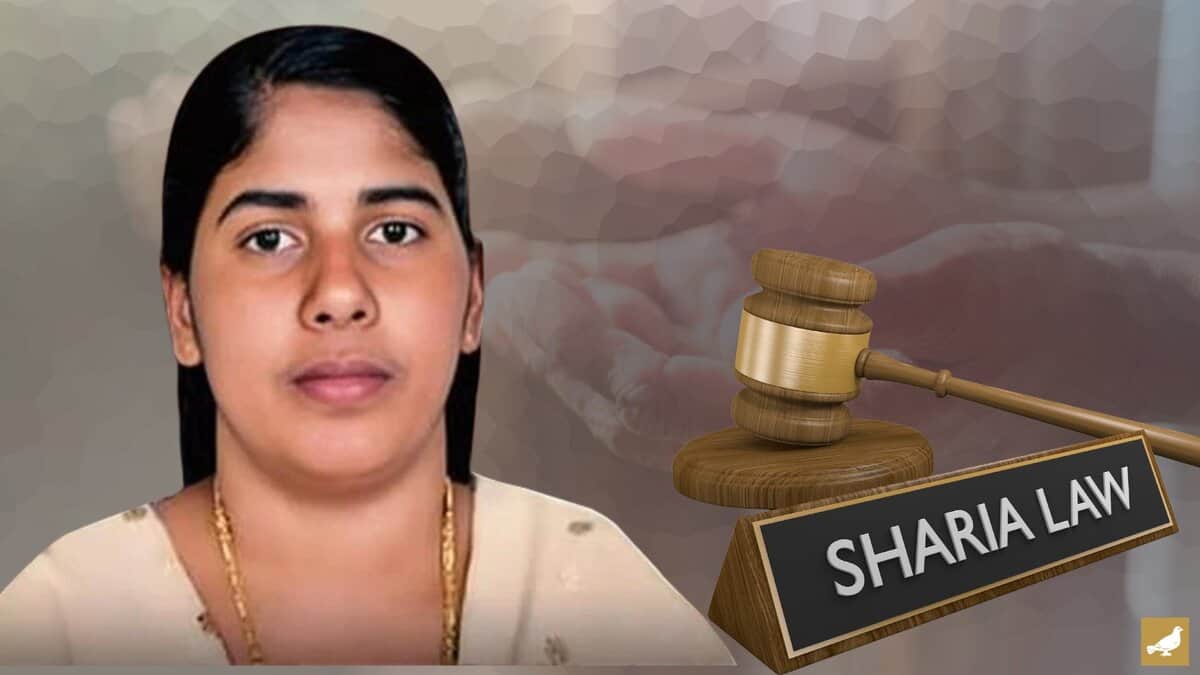
Hyderabad: To err is human, to forgive divine. This timeless adage finds renewed relevance in the unfolding story of Nimisha Priya, an Indian nurse on death row in Yemen. As global campaigns gain momentum to secure her release, the case presents an opportunity to reflect on the spirit of forgiveness and mercy enshrined in Islamic jurisprudence.
The recent postponement of Nimsha’s execution has renewed diplomatic and religious efforts to seek clemency. Among those working quietly to influence the case is India’s Grand Mufti, Sheikh Kanthapuram A.P. Aboobacker Musliyar.
Capturing spirit
His remark, “I didn’t look at her religion. I looked at her humanity,” captures the spirit of compassion that lies at the heart of Islamic jurisprudence. His behind-the-scenes role is believed to have contributed to the temporary stay on Nimsha’s execution.
The 37-year-old Nimsha, a native of Kollengode in Kerala’s Palakkad district, has been on death row at the Central Prison in Sanaa, the capital of Yemen, for the alleged murder of a Yemeni national, Talal Abdo Mahdi. She has been languishing in prison since 2017. She is alleged to have administered ketamine to Mahdi, resulting in a fatal overdose. Her lawyers claim that her intention was only to sedate him in order to recover her passport and other personal documents that he had withheld.
At the very core of Islamic tradition lies a framework of justice that balances retribution with compassion. The Shariah prescribes three broad categories of punishment: Hudood (fixed punishments), Qisas (retributive justice), and Ta’azir (discretionary punishment).
Fixed law
Hudood pertains to crimes where punishment has been explicitly fixed by Allah and His Messenger. These include offences seen as violations of the rights of God (Huqooq Allah), and once such a case is established in court, the Qazi is obligated to enforce the prescribed penalty – regardless of any forgiveness from the victim. The six major Hudood crimes include:
1. Had-e-Zina (unlawful sexual relations),
2. Had-e-Sarqa (theft),
3. Had-e-Qazf (false accusation of adultery),
4. Hirabah (armed robbery or terrorism),
5. Shurb al-Khamr (drinking alcohol), and
6. Riddah (apostasy).
The penalties for these are detailed in the Hadith literature and codified by Islamic jurists. However, the case of Nimsha Priya does not fall under Hudood but rather Qisas.
Punishments prescribed
In Qisas — the principle of “an eye for an eye” — the family of the murder victim has the right to demand retaliation. Yet, this same framework also allows for mercy. The heirs of the deceased can choose to pardon the offender outright or accept diya (blood money), a monetary compensation in exchange for forgiveness. Such forgiveness must be genuine and officially recognized by a Shariah court, as in Yemen.
This practice of diya is followed in many Islamic nations, including Saudi Arabia, Iran, Yemen, Libya, Sudan, and Afghanistan. It provides a moral and legal path toward reconciliation, enabling the offender to avoid capital punishment and the victim’s family to uphold the Quranic ideal of compassion.
Forgiveness over revenge
Several verses from the Quran strongly emphasize forgiveness over revenge. In Surah (chapter) Ash-Shura (42:40–43), Allah says: “The repayment of a bad action is one equivalent to it. But whoever pardons and makes reconciliation, his reward is with Allah… And whoever is patient and forgives — indeed, that is a sign of real resolve.”
Another verse, Surah An-Nahl (16:126), states: “If you were to retaliate, let it be equivalent to what you have suffered. But if you endure patiently, that is certainly best for those who are patient.” These verses elevate forgiveness not only as an option but as a virtue.
The third category, Ta’azir, covers those wrongs for which no fixed punishment is prescribed in the Quran or Hadith. Here, the Qazi (judge) has the discretion to determine a fitting punishment based on the severity of the crime and the circumstances.
Public sentiment
In the case of Nimsha Priya, there is growing public and religious sentiment in favor of clemency. A retired Assistant Commissioner of Police, Chakrapani, who spent years in Hyderabad mediating disputes among Muslims using the Quran and Hadith, is among those who advocate forgiveness. A student of Islamic texts, he often encouraged reconciliation and discouraged prolonged litigation. “Forgiveness,” he says, “has always been given a higher place in the Quran.”
Nimsha’s case is thus more than a legal matter – it is a moral test for society. The overwhelming public sentiment, both in India and abroad, is one of compassion. People are rallying behind Nimsha not just out of sympathy, but in recognition of the redemptive power of forgiveness. The campaign to save her life is not only humanitarian but deeply rooted in Islamic ideals.
In an age marked by vengeance and retribution, the Quran offers a counter-narrative — one of healing, compassion, and reconciliation. Forgiving Nimsha would not negate the pain of the victim’s family, but it would elevate them morally and spiritually. It would turn a tragic episode into a powerful testimony of Quranic mercy.



